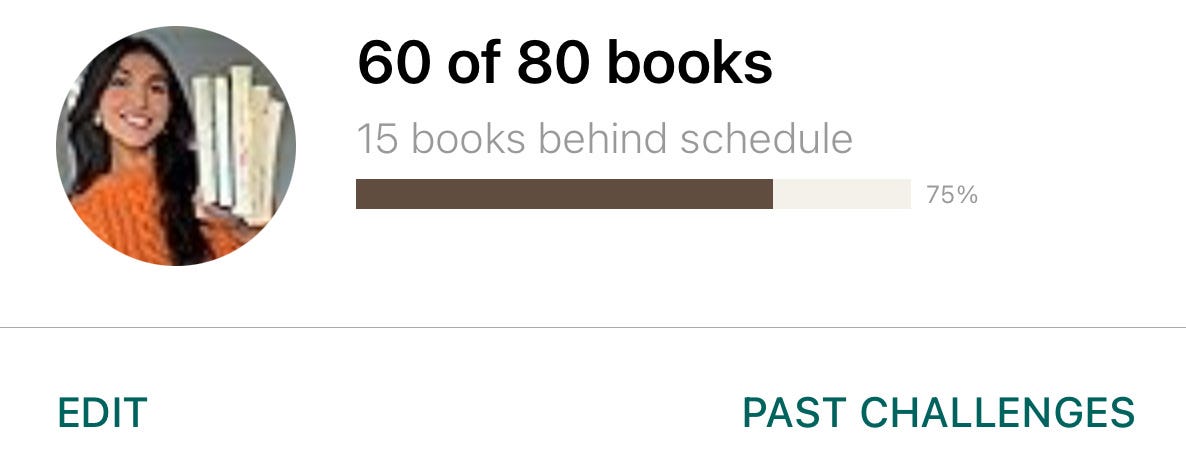why i’m no longer setting reading goals in 2025
At the start of 2024, I set a goal to read 80 books. However, as I write this, I’ve only read 60. While that’s 20 books shy of my original target—and 40 fewer than my personal best in 2021—I’ve never felt more intellectually fulfilled.
This year has taught me an important lesson about reading: what constitutes a successful reading year goes beyond the vanity metric of the number of books read in any given year.
A successful reading year should be measured qualitatively based on how much the books you read deepen your understanding of a subject, challenge your thinking, or reshape how you see the world.
Albert Einstein once wrote, “Any man who reads too much and uses his own brain too little falls into lazy habits of thinking.”
Anyone can read 100 books in a year if they skim through them, speed-read, or move on quickly to the next without fully absorbing the content. But that’s not an accurate indicator of intellectual ability or someone who is well-read. Overindulging in reading without engaging in thoughtful reflection or analysis is a form of intellectual laziness and stagnation.
True intellectual growth happens when we read thoughtfully and reflectively, allowing the material to challenge our assumptions or beliefs and expand our understanding.
It is better to read a little and ponder a lot than to read a lot and ponder a little.
Denis Parsons Burkitt
With that in mind, my primary “reading” goal in 2025 is to challenge myself by reading diverse books and subjects I don’t typically read and to deepen my understanding of subjects I’m curious about. For example, I plan to read about philosophy, politics, economics (especially development economics and diverse schools of thought), influential biographies, and classical and contemporary literature.
As 2025 approaches, I also urge you to reconsider how you set your own reading goals.
Rather than establishing the number of books you want to read next year, ask yourself:
What subjects do I want to learn or read in 2025?
Why am I motivated to read about these subjects?
Who are the original thinkers in this field that I can learn from?
How can I actively engage with the books that I read?
By shifting our focus from the number of books we want to read to the subjects or skills we want to prioritize, we are more likely to foster intellectual growth and cultivate a more sustainable approach to reading.


I also set an 80 book goal this year and fell short. My goal for 2025 is to try and make it through the longer classics. I’ve never read Victor Hugo for example. It’ll help improve my writing too. Great post!
I agree. I hit 100 books this year for the first time and probably won't shoot for it again. I did read some great books this year but the goal of a quantity seems shallow to me at this point!